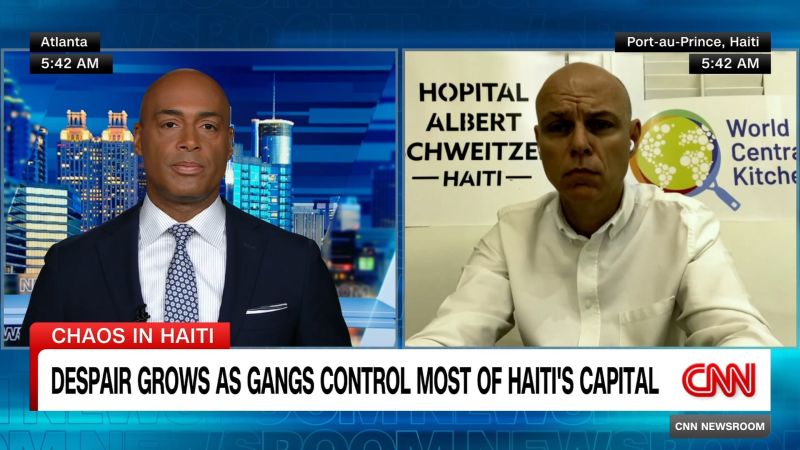Haiti, a small country in the Caribbean, is currently grappling with not just escalating gang violence, but also a growing hunger crisis. Aid workers and international organizations are increasingly raising alarm bells, warning that a perfect storm of insecurities is driving substantial proportions of the Haitian population to the brink of starvation.
Over the last few years, Haiti’s security situation has sharply deteriorated due to the proliferation of gangs and the increase of violent incidents. The escalating crisis is affecting the transportation and distribution of food, exacerbating the existing food insecurity. Gangs frequently target delivery trucks for food and aid supplies, making it increasingly challenging for aid organizations to provide much-needed support to vulnerable communities. The threats and intimidation from armed groups have forced many businesses to shut down or reduce their operations, driving up prices and making essential goods inaccessible to many Haitians.
Gang violence also limits people’s mobility and disrupts local markets. Various lockdowns enforced by gangs have severed vital connections between rural areas, which are Haiti’s food basket, and urban markets. These forced interruptions to trade exacerbate the food crisis by preventing rural farmers from selling their produce and limiting urban dwellers’ access to fresh produce. With food scarcity growing, the prices of available produce have spiked, making it out of reach for a majority of the population.
Amid the ongoing violence and insecurity, Haiti is seeing a parallel rise in its hunger crisis. One of the main reasons for this concerning situation is the collapse of agricultural productivity due to natural disasters and climate change, which leads to locals’ inability to grow enough food to sustain their families. With limited access to other forms of sustenance, many people are pushed into extreme food insecurity.
The situation is more distressing for internally displaced persons (IDPs) and impoverished urban dwellers. In the northern and southern parts of the country, thousands of people have been forced to flee their homes because of the violence. These IDPs have limited options but to depend on external aid, which continues to be disrupted by gangs. On the other hand, in urban areas where informal economies predominate, the economic impact of the gang crisis has left many without the ability to purchase basic foodstuffs.
The crisis requires urgent attention from the regional and international community. Aid organizations face an uphill climb in their efforts to alleviate hunger. Increasingly dangerous working conditions, combined with the rapidly worsening humanitarian crisis, cannot be addressed adequately without significant support and intervention from the global community.
Urgent and focused interventions are needed from the international community. These should include diplomatic efforts aimed at peace-building, robust security measures to safeguard aid workers and their efforts, and emergency food relief to the most vulnerable pockets of population. Parallelly, measures to mitigate the effects of climate change on agricultural production, along with support for livelihood restoration and enhancement, are also critical.
Current statistics paint a grim picture, and the warnings by aid workers indicate that if left unchecked, Haiti’s hunger crisis could spiral into a catastrophe of unimaginable proportions. This crisis requires both immediate attention and significant long-term commitment to effectively address the root causes of hunger and instability in Haiti.
Without mitigating the security situation, intervening in co-existing crises such as food insecurity becomes increasingly challenging for aid organizations. Addressing Haiti’s hunger crisis requires a multi-layered approach, with violence reduction at its crux, comprehensive food security initiatives, and resilience-building strategies at local and national levels. This multi-pronged approach will provide the basis for a more sustainable response to the country’s humanitarian crisis. Haiti’s hunger crisis is not just a Haitian problem; it’s a challenge to global peace and security that warrants more concerted and collaborative action.




